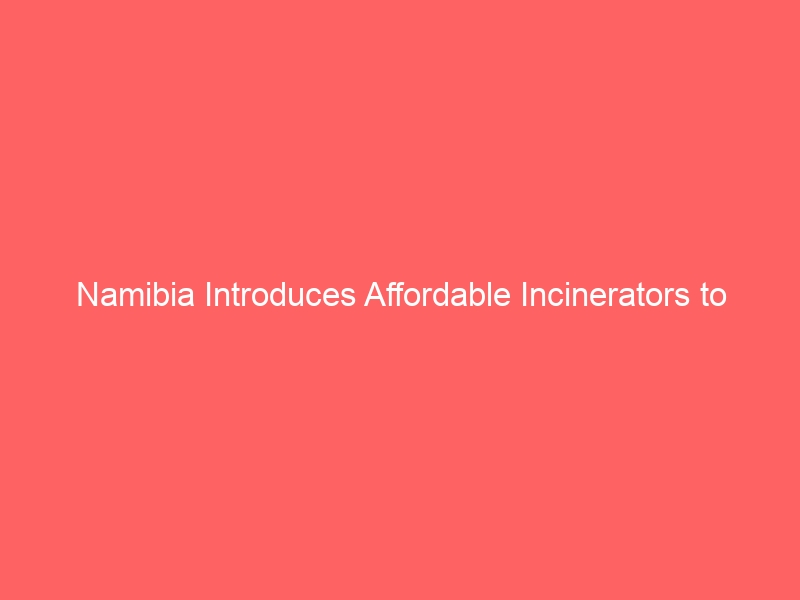Introduction
Namibia has recently implemented a new solution to tackle its waste management issues by introducing affordable incinerators. This development comes as a response to the growing concerns over the country’s waste problem, particularly in urban areas.
The Need for Sustainable Waste Management
Like many other countries, Namibia is facing a significant waste management challenge. With a rapidly growing population and increasing urbanization, the amount of waste being generated has steadily increased. This has put pressure on existing waste management infrastructure, leading to issues such as overflowing landfills and environmental pollution.
Introducing Affordable Incinerators
In an effort to address these challenges, Namibia has turned to affordable incinerators as a viable solution. These incinerators are designed to efficiently burn waste at high temperatures, reducing it to ash and significantly minimizing its volume. This not only helps in reducing the amount of waste that ends up in landfills but also decreases the environmental impact of waste disposal.
Benefits of Affordable Incinerators
One of the key benefits of introducing affordable incinerators is their cost-effectiveness. Traditional waste management methods, such as landfilling and recycling, can be expensive and often require significant infrastructure. In contrast, affordable incinerators provide a more affordable and accessible option for waste disposal, particularly in areas with limited resources.
Furthermore, incinerators can help in generating energy from waste. The heat produced during the incineration process can be harnessed to generate electricity, which can be used to power local communities. This presents a sustainable and renewable energy solution, contributing to the country’s overall energy needs.
Challenges and Considerations
While affordable incinerators offer several advantages, there are also challenges and considerations to address. It is important to ensure that the incineration process is conducted in an environmentally responsible manner to minimize air pollution and emissions. Additionally, proper waste segregation and management practices are crucial to ensure that only suitable waste is incinerated.
Conclusion
The introduction of affordable incinerators in Namibia represents a significant step forward in the country’s efforts to tackle waste management. With a focus on cost-effectiveness and sustainability, these incinerators have the potential to make a meaningful impact on waste disposal practices and contribute to the overall environmental well-being of the country.








